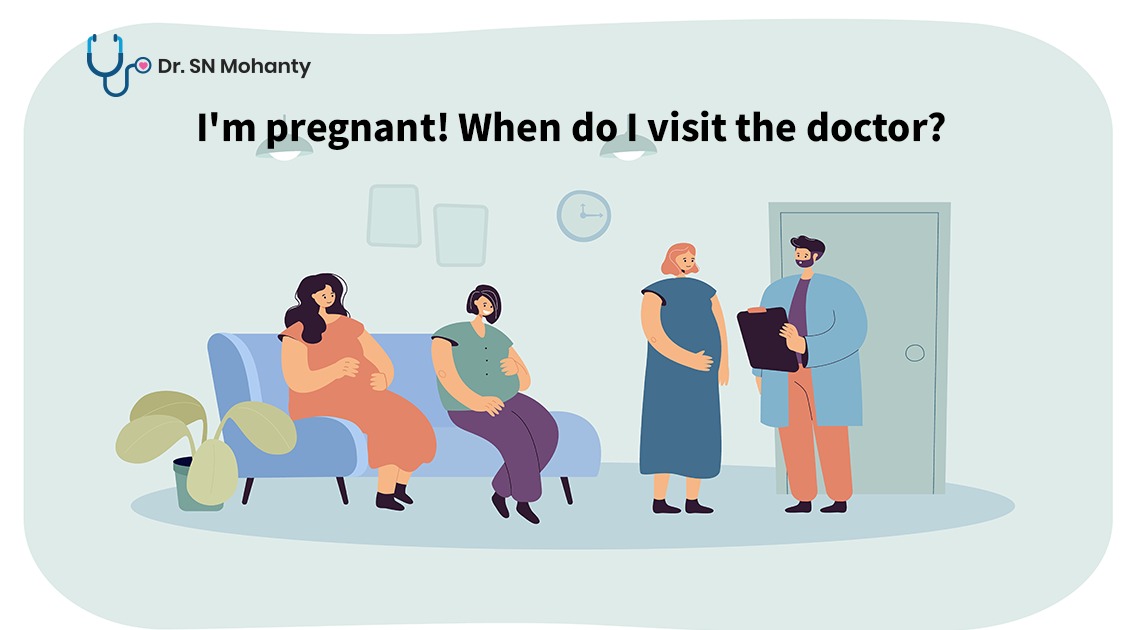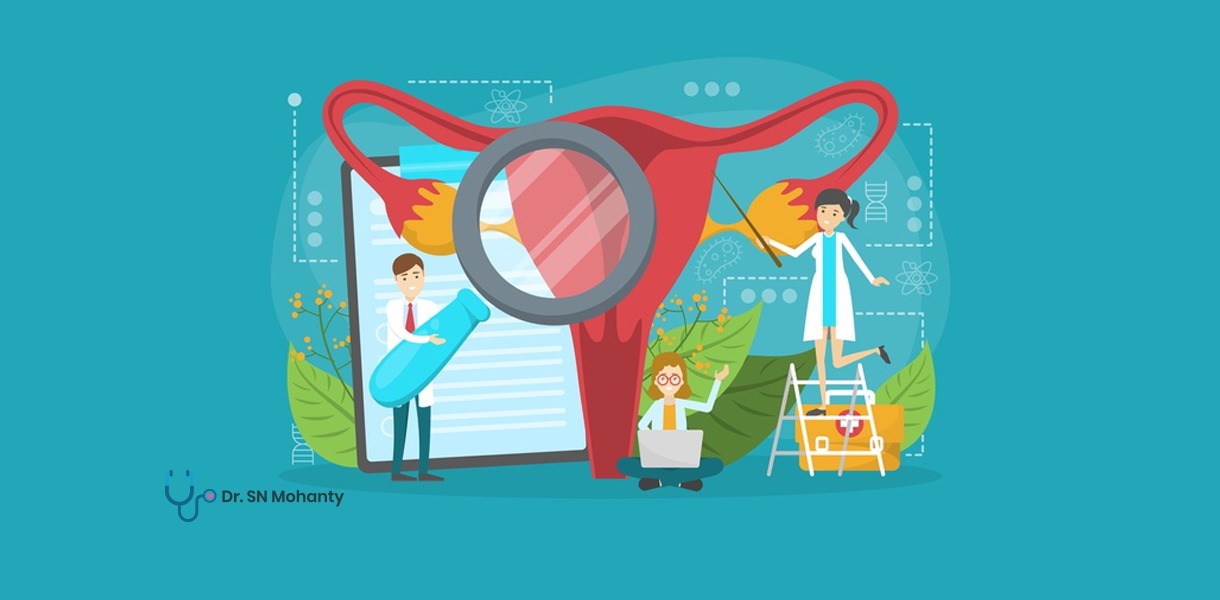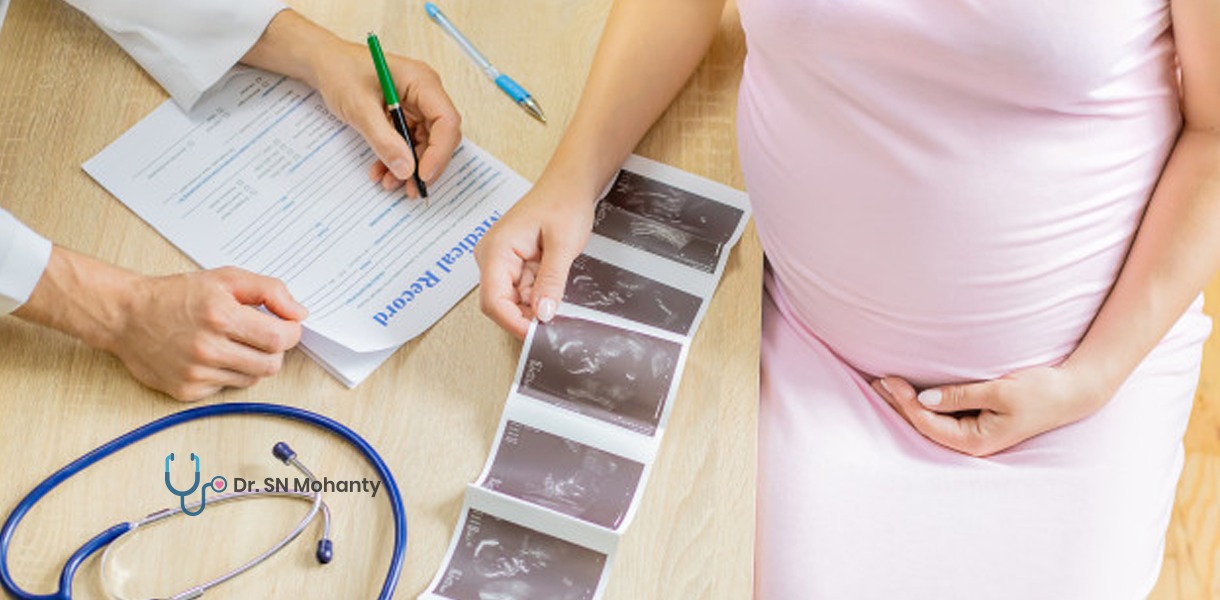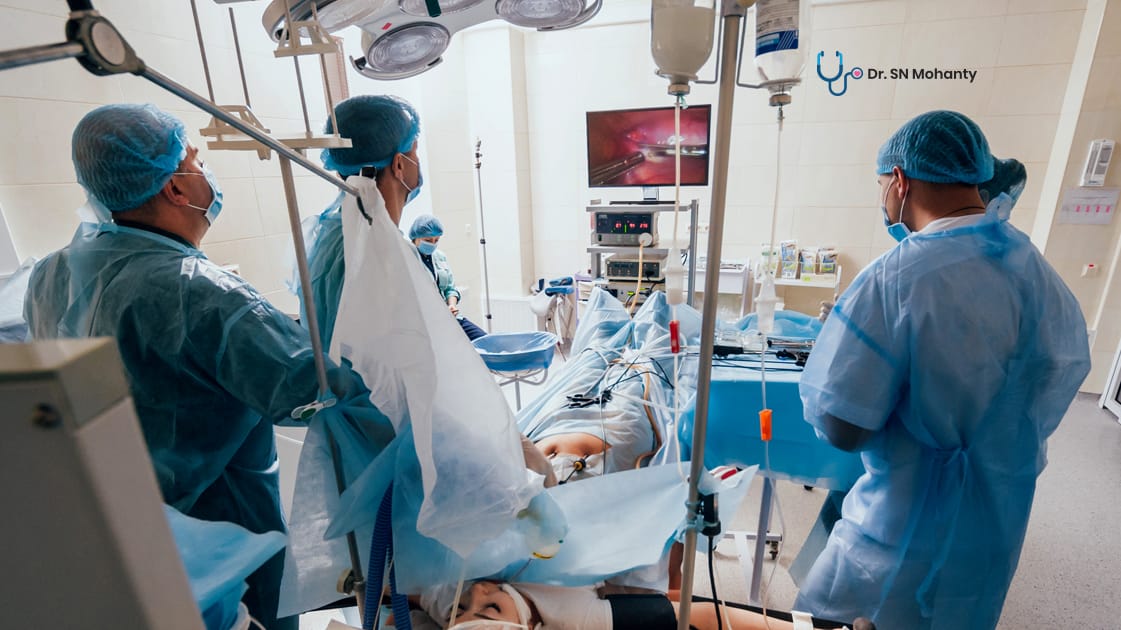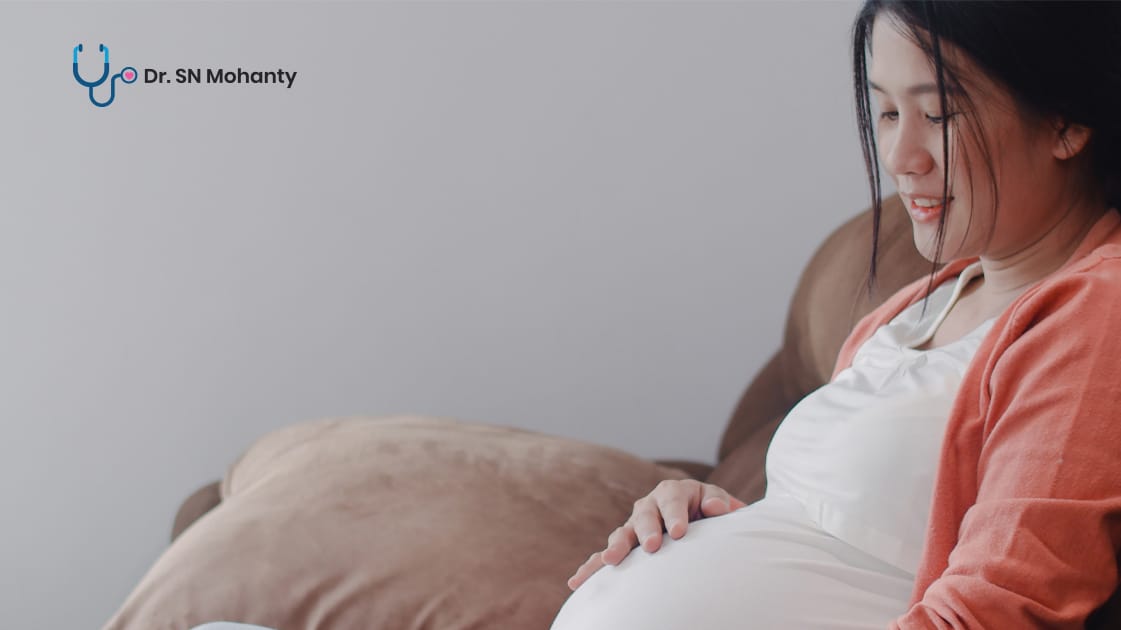
Pregnancy is one of the most important phases of a woman's life. As per the normal procedure, the fetus grows in the mother's womb for nine months and after a nine-month-long journey; the baby is delivered at the hospital through normal or c-section delivery. After two to three days, the patient can take their bundle of joy home. But the fact is not all pregnancies and deliveries are normal.
Every pregnancy and delivery story is different. Complications and risks are part of some pregnancies and deliveries. Best gynecologist and obstetrician, Dr. Suryanarayan Mohanty, share the fact that a fit woman can also experience pregnancy and delivery-related complications. It is a myth that an unfit woman only faces complications during those nine months of pregnancy.
The complications that a pregnant woman experiences during pregnancy may affect her health, fetus health, or both. Sometimes, the health problems or health conditions that a woman faces before pregnancy may be the reason for complications during pregnancy, whereas some complications occur during delivery.
Dr. Suryanarayan Mohanty, one of the best gynecologists and obstetricians in Bhubaneswar, says that pre-planning the pregnancy and timely seeing your healthcare provider during pregnancy can help minimize the complications during pregnancy and labor.
Some of the common complications that a woman experiences during her prenatal days are:
- High blood pressure
- Gestational diabetes
- Preeclampsia
- Preterm delivery
- Loss of fetus or miscarriage
Not that every woman is at risk of complications. Let us understand who is at the risk of complications?
Experienced gynecologist doctors say that, while pre-planning your pregnancy, make sure that you discuss any health issues or disorders you already have. It will help the doctor plan your prenatal days and prescribe you any medical care if needed in advance.
Some factors that may increase the risk of complications include:
- If the age of a pregnant lady is 35 years and above.
- If you are too young to become pregnant,
- The habit of smoking cigarettes or drinking alcohol
- Eating problems like anorexia
- Habitual use of taking illegal drugs
- Having a history is preterm labor or premature delivery
- If you are carrying multiple babies in a single pregnancy.
What are the most common pregnancy and labor complications?
Sometimes it is hard to distinguish between normal pregnancy symptoms and symptoms of any disease and complications during pregnancy. Hence, as a result, symptoms sometimes become severe from mild ones.
Therefore, best obstetricians say that although the symptoms and complications are mild and might not be serious in the future, see the doctor timely.
Some common pregnancy problems are:
1. High blood pressure-
High blood pressure during pregnancy refers to a condition in which the arteries that carry blood from the heart and placenta are narrowed. It is associated with various complications during pregnancy, such as.
- Preeclampsia
- Increases your risk of a baby that is delivered to be too small
- Preterm delivery
It is very important to see the obstetrics doctor and take medications regarding high blood pressure during pregnancy.
2. Gestational diabetes-
Although gestational diabetes goes after delivery, it comes with some complications during pregnancy. It is the condition when the pregnant lady's body does not process sugar effectively.
It leads to higher sugar levels. Along with some medications, the pregnant lady is supposed to take care of her meals and exercise regularly. In some cases, insulin is required to keep the sugar levels under control.
3. Preeclampsia-
Preeclampsia occurs during 20 weeks of pregnancy. Preeclampsia is also called toxemia. It causes high blood pressure as a potential problem with the patient's kidneys. The treatment of preeclampsia is to deliver the baby and placenta to stop the disease from progressing. The obstetrician will educate the patient about the risks and complications related to it during delivery.
4. Preterm delivery-
Preterm delivery is the labor before 37 weeks of pregnancy. It is the time when the gestation is not fully grown. Some parts of the body, like the brain and lungs, are not yet fully developed. Certain medications along with bed rest are recommended as a treatment to stop premature delivery.
5. Loss of fetus or miscarriage-
Miscarriage is the loss of a pregnancy during 20 weeks of pregnancy. According to researches, most healthy women will experience a miscarriage at this stage only. Sometimes, miscarriage happens before the woman even knows about her pregnancy. We cannot prevent miscarriage on a few occasions.
6. Anemia-
Anemia is a condition of pregnancy in which the pregnant lady has a lower number of red blood cells. In this medical condition, the pregnant lady feels tired most of the time of the day. The patient may also have pale skin. Anemia can be cured by having some light medications like iron and folic acid supplements.
7. Various infections-
Various infections may complicate the pregnancy. The infections may include bacterial, viral, and parasitic infections. The infections can affect both mother and the baby.
- Urinary tract infection
- Bacterial vaginosis
- Cytomegalovirus
- Hepatitis B virus may affect the baby in future
- Influenza, etc.
Some common delivery complications are:
1. Low birth weight-
The low birth weight of the child is because of the poor nutrition of the mother during pregnancy. Babies with low birth weight are at higher risk of the following health conditions:
- Respiratory infections
- Learning disabilities
- Heart infections
- Visual problems
Also, babies with low birth weight need to stay longer (also for months) in the hospital under the observation of doctors.
2. Placenta previa-
It refers to the condition where the cervix is covered with the placenta. Here, doctors usually prefer to perform c-section delivery.
3. Breech position-
If the baby is in the breech position, it is difficult to have a normal delivery. Breech position means the baby's legs are towards the vagina. Normally, the head of the baby should be towards the vagina during labor.
Mostly, when the baby in the womb is healthy, it cannot change its position in the last trimester of pregnancy. So during the labor, it is still in a breech position. Hence, the obstetrician opts to go for a c-section delivery.
See your doctor immediately under the following conditions:
- Unexpected bleeding from vagina anytime during nine months of pregnancy
- Sudden swelling of hands or face
- Sudden and chronic pain in the abdomen
- Fever
- Headaches
- Dizziness
- Persistent vomiting
- Blurred vision
The patient is expected to call the doctor immediately if she feels that baby's movements are lowered during the third trimester.
You can prevent complications by:
- Eat a healthy diet that includes lots of fruits, vegetables, and other healthy things.
- Take all prenatal vitamins from time to time.
- Visit the doctor timely for your routine prenatal checkups.
- Keeping weight gain check.
- Quit smoking.
- Avoid drinking alcohol.
- Try to reduce stress levels as it may cause complications like high blood pressure.
- If you are taking any medicines already because of other health conditions, talk to your gynecologist/ obstetrician without fail.
Not all health complications during pregnancy and delivery are preventable. But, try to take all the above preventive measures to lower the effects of complications.


